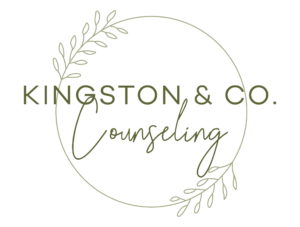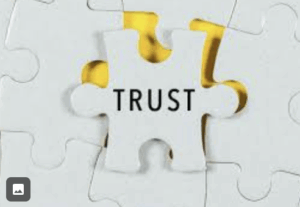Effective communication is the foundation of any healthy romantic relationship. It fosters understanding, strengthens emotional connections, and helps couples navigate challenges together. However, even the strongest relationships can fall into communication traps that lead to misunderstandings, frustration, and conflict. In this post, we’ll explore some of the most common communication pitfalls in relationships and offer practical solutions to overcome them.
1. Assuming Your Partner Can Read Your Mind
The Pitfall:
One of the most common communication mistakes in relationships is expecting your partner to just know what you need or how you feel without expressing it directly. This often leads to disappointment when expectations aren’t met.
How to Fix It:
Instead of assuming, practice clear and direct communication. If something is bothering you, express it openly using “I” statements, such as:
👉 “I feel overwhelmed when I handle all the household chores alone. Could we talk about how to divide them more fairly?”
Being upfront about your needs fosters clarity and reduces the chances of miscommunication.
🔗 Need more help improving communication? Our couples therapy sessions can help you and your partner develop healthy communication skills.
2. Talking More Than You Listen
The Pitfall:
Many people focus so much on getting their point across that they forget to truly listen to their partner. Interrupting, mentally preparing a response while the other person is talking, or dismissing their feelings can all damage communication.
How to Fix It:
Practice active listening by giving your full attention when your partner speaks. This means:
✔️ Maintaining eye contact
✔️ Nodding or using verbal affirmations (“I hear you,” “That makes sense”)
✔️ Summarizing what they said (“So what I hear you saying is…”)
When both partners feel heard and understood, conversations become more productive and meaningful.
🔗 Check out our blog on active listening techniques for more practical tips.
3. Using Blame and Criticism Instead of Expressing Needs
The Pitfall:
It’s easy to fall into the habit of blaming your partner when you feel frustrated. Saying things like “You never listen to me” or “You’re so selfish” can make your partner feel attacked, leading to defensiveness rather than resolution.
How to Fix It:
Instead of blaming, express how you feel and what you need without attacking your partner’s character. Use the Gottman Institute’s “gentle start-up” approach:
❌ Instead of: “You never make time for me.”
✅ Try: “I feel disconnected when we don’t spend quality time together. Can we plan a date night soon?”
This shifts the conversation from confrontation to collaboration.
🔗 If criticism and defensiveness are common in your relationship, couples therapy can help break the cycle and build healthier communication habits.
4. Letting Small Issues Build Up
The Pitfall:
Some people avoid conflict by bottling up their feelings, hoping issues will resolve themselves. However, unresolved resentment can build over time and lead to explosive arguments down the line.
How to Fix It:
Address concerns as they arise instead of letting them fester. Try using the 24-hour rule: If something bothers you, bring it up within a day while it’s still manageable. The key is to express it calmly and constructively, rather than letting emotions pile up until they explode.
If you struggle with bringing up difficult conversations, practicing assertiveness in a safe space—like couples counseling—can help.
5. Shutting Down During Conflict (Stonewalling)
The Pitfall:
Stonewalling occurs when one partner emotionally withdraws during conflict—going silent, walking away, or refusing to engage. While it might seem like a way to avoid further escalation, it actually leaves the other partner feeling unheard and frustrated.
How to Fix It:
If you feel overwhelmed during an argument, communicate that you need a break rather than shutting down completely. For example:
💬 “I need a few minutes to collect my thoughts. Can we take a short break and talk about this in 30 minutes?”
Taking a break to self-soothe can prevent knee-jerk reactions and create space for a more productive conversation.
6. Avoiding Difficult Conversations
The Pitfall:
Many couples avoid discussing sensitive topics—such as finances, intimacy, or family issues—out of fear of conflict. However, avoiding tough conversations doesn’t make problems go away; it often makes them worse.
How to Fix It:
Schedule time to talk about important topics in a calm setting. Instead of bringing up serious issues in the heat of the moment, approach them when both of you are in a relaxed state.
For example, try saying:
👉 “I’d love to talk about our financial goals. Can we set aside some time this weekend to go over our budget together?”
Being proactive about discussions can strengthen trust and prevent misunderstandings.
7. Letting Technology Distract from Real Conversations
The Pitfall:
In the digital age, it’s easy to get distracted by phones, social media, or work emails during important conversations. If you or your partner frequently check devices while talking, it can create feelings of disconnection.
How to Fix It:
Establish tech-free zones during quality time together—such as putting phones away during meals or setting aside an hour each evening for undistracted connection.
Even small changes, like maintaining eye contact instead of scrolling through your phone, can make your partner feel valued and heard.
Final Thoughts: Communication Takes Practice
No relationship is perfect, but being mindful of common communication pitfalls can help you build a stronger, healthier connection with your partner. If you and your partner struggle with effective communication, seeking professional guidance through couples therapy can provide valuable tools to improve your relationship.
At Kingston & Co Counseling, our experienced therapists help couples learn effective communication strategies to strengthen their bond. If you’re ready to enhance your relationship, contact us today to schedule a session.
✨ A thriving relationship starts with better communication. Let’s work on it together!







